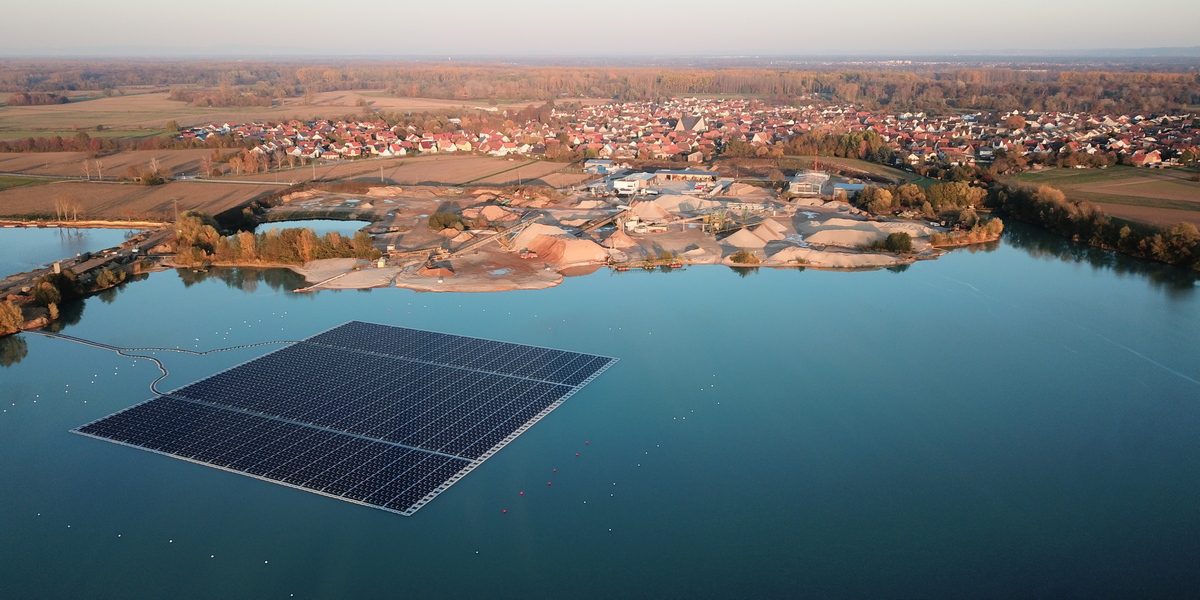From pv magazine Germany
Researchers at Germany's Fraunhofer ISE are investigating the impact that floating PV arrays have on lake ecosystems.
Together with the energy supplier Erdgas Südwest, the researchers are investigating the effects of a floating PV system deployed on a quarry pond in Leimershein, in the Rhineland-Palatinate state, southern Germany.
The company installed the 1.5 MW system on more than 6,500 floating structures hosting 3,744 solar panels. The lake is 18 hectares in size and around 8% of its surface is covered by the solar array.
The research team will permanently attach twelve sensors to the system and the lake around it. It wants to use the sensors to document the oxygen content, temperature, carbon dioxide content and the availability of various nutrients.
“Based on the results, we will be able to better determine what the perfect ratio between lake and facility area should be, in order to even achieve, in the best case, positive effects on water quality,” explained Fraunhofer ISE researcher Konstantin Ilgen. “Our previous measurements in the Renchen quarry lake suggest that with an area occupancy of up to 10%, hardly any effects on the lake are to be expected. This now needs to be underpinned.”
Popular content
In May 2023, the researchers also examined the effects of the floating solar system in Renchen using stationary and mobile probes. It turned out that the system had little influence on the oxygen content or thermal stratification of the lake. However, the system only covers 2% of the water surface.
The Fraunhofer ISE team also found that the structure of the photovoltaic system prevented the wind from coming into contact with the water surface and therefore had no cooling effect. On the other hand, the modules shade the water surface and thus provide cooling.
The research project in Leimersheim is expected to deliver results in around two years.
Natural gas Südwest is supporting another research project on site. The Karlsruhe Institute of Technology (KIT) is currently investigating the effects of the floating photovoltaic system on the biology of the quarry lake. Results are expected here in 2024.
This content is protected by copyright and may not be reused. If you want to cooperate with us and would like to reuse some of our content, please contact: editors@pv-magazine.com.



2 comments
By submitting this form you agree to pv magazine using your data for the purposes of publishing your comment.
Your personal data will only be disclosed or otherwise transmitted to third parties for the purposes of spam filtering or if this is necessary for technical maintenance of the website. Any other transfer to third parties will not take place unless this is justified on the basis of applicable data protection regulations or if pv magazine is legally obliged to do so.
You may revoke this consent at any time with effect for the future, in which case your personal data will be deleted immediately. Otherwise, your data will be deleted if pv magazine has processed your request or the purpose of data storage is fulfilled.
Further information on data privacy can be found in our Data Protection Policy.